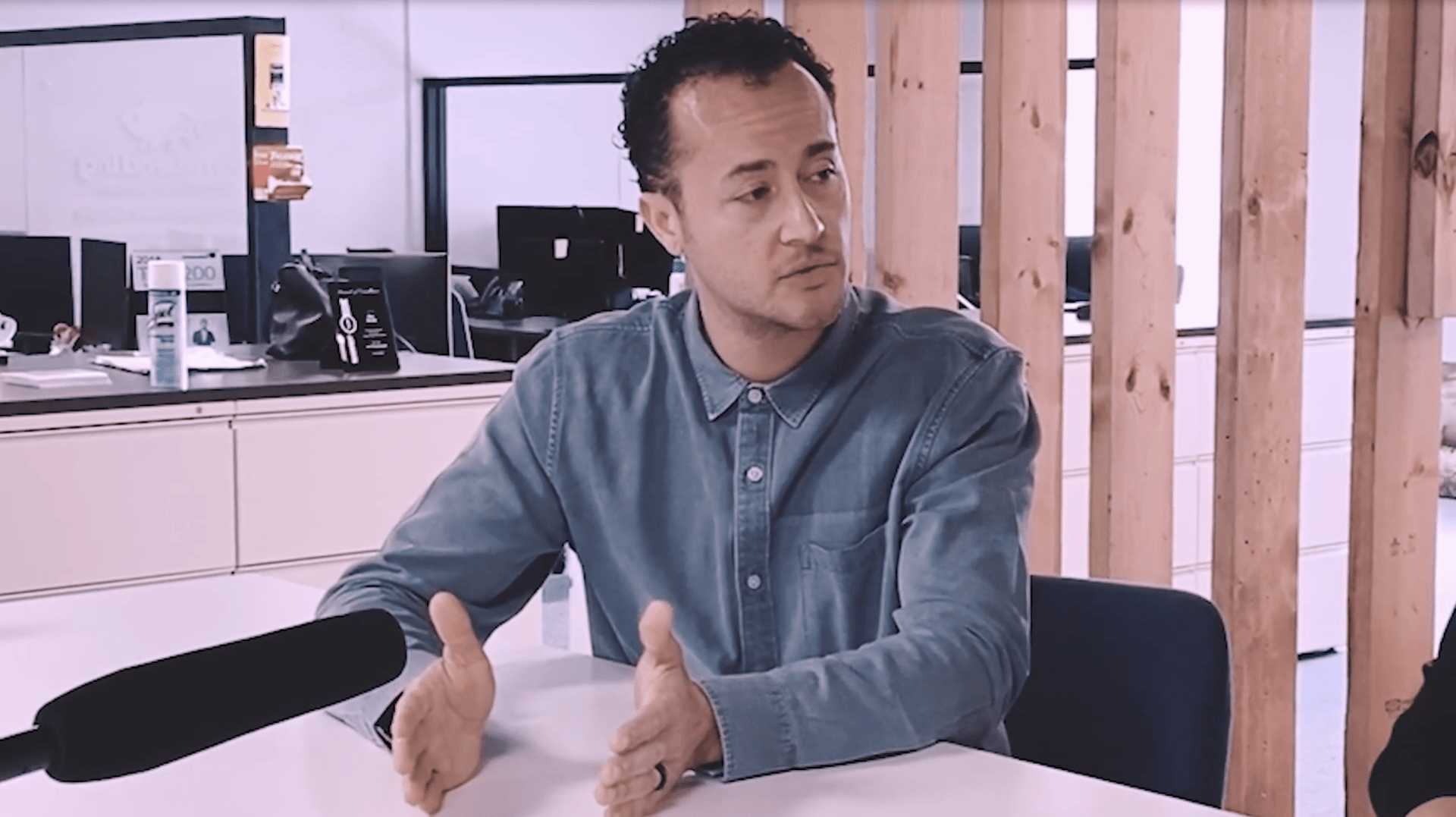News
NEWS & UPDATES

By Alex Varela
•
16 Feb, 2024
New ParaIn the realm of mortgage refinancing, the Interest Rate Reduction Refinance Loan (IRRRL) program stands out as a valuable option for veterans seeking to streamline their VA loans. Spearheaded by experienced loan officers like Alex Varela, IRRRL loans offer a plethora of benefits tailored to meet the unique needs of military personnel and their families. What is an IRRRL Loan? An IRRRL, also known as a VA Streamline Refinance, is a VA-to-VA refinance loan program designed to help veterans lower their interest rates and reduce their monthly mortgage payments. Unlike traditional refinancing, IRRRL loans come with simplified documentation and streamlined processing, making them an attractive option for veterans looking to optimize their finances. The Benefits of IRRRL Loans One of the primary advantages of IRRRL loans is their ability to lower interest rates with minimal hassle. Veterans who currently hold VA loans can leverage IRRRL refinancing to secure lower interest rates, potentially saving thousands of dollars over the life of their loan. With interest rates constantly fluctuating, IRRRL loans provide veterans with the opportunity to capitalize on favorable market conditions and lock in more affordable rates.

09 Jun, 2022
Closing on your home loan is a big deal. You've put in an offer, you've gotten an approval, and now all that's left is for the lender to sign off and give you the keys to your new home. This process can be quick and painless, or it can drag out resulting in not closing in time—and there are a lot of factors that go into determining which happens. Here are some tips to help you close quickly on your house: You can get a mortgage quickly and save money if you prepare beforehand. If you want to close on a home loan quickly, the first thing you need to do is make sure that your finances are in order. Determine how much money will be available for a down payment and closing costs. Make sure that you have enough income and assets to qualify for the mortgage, and determine which types of debts (e.g., credit cards) may affect your ability to get approved for a loan. To find out what kind of interest rates are currently being offered by lenders in your area, speak with an experienced mortgage broker or real estate agent who can help guide you through this process (and keep in mind that rates vary widely from one lender—or even from one branch within one lender’s network—to another). Get your finances in order and stay there. To start, you need to make sure your finances are in order. Your most important number is your credit score. If you want to close on a home loan fast, keep your credit score high and don't take on new debt. That means no new credit cards and no home equity loans or car loans or personal loans or payday loans (and so forth). You also want to avoid taking out any kind of loan while working with a lender. Banks can check whether you've applied for other mortgages within the past 60 days—even if they didn't approve them—so this will hurt your chances of getting approved later if it looks like you're just trying to borrow from one bank after another until one bites. Get your documents ready. Get your financial documents ready Make sure you have a copy of every single bank statement or credit card statement for the last two years. This will make it easier for the lender to verify your income and prove that you're able to pay back the mortgage. Also, bring in any new forms of ID you may have recently obtained (like an updated driver's license) so they can be scanned into their system right away. If there are any past tax returns that need to be pulled, do it now—they'll need them as well! Shop wisely for a mortgage. If you're trying to close on your home as quickly as possible, the planning stage is where you can make or break your chances. Shop wisely for a mortgage. Know what kind of mortgage will work best for your situation and why. Just like when shopping for any other product, it's important that you understand what each type of mortgage offers before making an investment in one. Some mortgages are better suited for people who want to lock in their interest rate over an extended period; others may be better fit if someone expects to move soon after taking out the loan. Be aware of all fees associated with closing on a home loan fast (and there will be many). Fees vary from lender-to-lender but most include points paid at closing and origination fees (among other things). Having some money set aside can help buffer unexpected costs like these which could end up costing thousands of dollars more than expected -- so don't be afraid to ask questions! Solve any problems with your credit early on. The first thing you should do is examine your credit report for errors. If there are any, have them corrected immediately. You can also work to improve your score by paying off as much debt as possible and keeping up with payments on time. If you have any other debts besides a mortgage application being considered, this will also help your chances of getting approved for the loan. For example, if you are applying for a car loan at the same time as applying for a home mortgage and want to buy both things at once, it's best not to take out another personal loan or credit card while waiting on one piece of paperwork since this can lower the amount of money available to borrow overall (the more debt someone has becomes harder) and increase interest rates on loans taken out later down the road due in part because they want their money back plus whatever profit they made off those funds during that period without having made any effort toward repaying anything themselves). Also keep in mind that if there was ever an instance where someone filed bankruptcy or foreclosure after which they began making payments again within seven years before beginning work towards purchasing another house then those details need disclosed upfront so lenders know about potential issues such as having been sued by creditors or having lost property due bad financial decisions made prior before deciding whether or not lend Make an attractive offer. One of the most important things you can do to win over a lender and close on a home loan fast is to make an attractive offer. This means your offer should be competitive with what other buyers are offering, in line with current market price, and attractive to both the seller and lender (as well as yourself). The first step to making an attractive offer is determining how much money you want to spend on your new home. Once you've come up with an amount that works for you—or if there's already a listing price—look at comparable properties sold in the same area as yours. You'll want to find out how much they sold for during their most recent sale; this information should be easy enough for any real estate agent or broker to get from their databases. Pay down your other debts to help you qualify for a mortgage. Paying down your other debts will also help you qualify for a home loan. A debt-to-income ratio of 36% is ideal, meaning that you should have no more than $1 for every $3 earned in gross monthly income. If your debt-to-income ratio is higher than this, consider paying off your highest interest rate card first and then using those extra funds to pay down another debt with a lower interest rate. If you can't pay down these debts or consolidate them into one place where they are easier to manage, at least make sure that all of them are being paid on time and the minimum monthly payment is being met each month as well. Conclusion If you follow these steps and pay down your other debts, a home loan will be within your reach.

By Alex Varela
•
31 Dec, 2020
Preface To have the easiest and best experience obtaining a home loan follow the next 3 steps. Firstly use a mortgage professional that was recommended to you by your Realtor or by a trusted friend, co-worker, or family member that has used the mortgage professional recently and had a great experience with that professional. If you do not have a recommendation then you can search for a loan officer by their industry experience by going to https://nmlsconsumeraccess.org/. The longer the mortgage professional has been in the business the more likely they are to provide a positive experience for you. Secondly, be honest. nobody knows your personal financial situation more than you. Volunteer information that you may feel will disqualify you for a home loan. That is correct! Why would you do that? The entire mortgage process is designed to uncover those reasons. You are only hurting yourself by not informing your mortgage professional upfront. The mortgage professionals job is to provide solutions for those issues and help execute your plan. Trust is a big part of the process and relationship with your mortgage professional. Lastly, there is a lack of communication during the mortgage process. That is the reason for this article. A great mortgage professional will answer all your questions and anticipate your needs. They will address the questions and inform you of the process before it happens. However, that is when you have a great mortgage professional. Due to the lack of communication I suggest that you call or text your mortgage professional once a week once you are under contract to ensure that you are doing your part to keep the processing moving fast and smoothly. A typical contract is 30 days so that is 4 times you will need to follow up to ensure you will have a great experience obtaining a home loan. Pre Qualification First step is to see if you meet the minimum standards to obtain a home loan. The difference between pre qualification and pre approval is when you are pre qualified your file has only been reviewed by a loan officer. There are two more stages of due diligence that you have to go through in order to be pre-approved. Pre qualified is a decision made on the best information provided at the time of application. Pre approved is when the income, assets, credit, identity, and personal financial history has been completely verified. Which leads to the final decision maker called the underwriter issuing an approval on your loan. Pre Approval typically happens when you have a contract to purchase a new home. Very few mortgage companies will send your file to underwriting without a contract to purchase a home as it requires a lot of time and human resources and expense to a mortgage company to work on a file that may not turn into a loan. There are 3 items to review for pre qualification.

By Alex Varela
•
10 Dec, 2020
You say to yourself, “I just had the (best or worst) year in the mortgage industry. Inevitably the following question to yourself whether you broke a record this year or barely made enough to pay your bills is, “Am I in the right place, is there a better mortgage company for me to operate my business?” It could be that you are bored, or like all human nature you are not satisfied and feel the gaping hole in your soul begging for more completeness in your life. It could be an excuse for your short comings as a loan originator this year. It could also be that there is a better suited company for you to operate your business. You analyze the opportunity vs cost. What will I gain vs what do I give up. Is it worth it? I have been here for many years. I have only been here a short period of time, it wouldn’t matter if I made a change. Who will pay me the most? Who has the best marketing? Will they give me leads? So many questions. However, when you go to search the internet you will find little to no resource on how to make this decision. Until now! Here you will not only find support on how to make the decision but also a useful tool that lists 100 questions you should ask your future employer before committing to do business with them. How to make the decision? I have been in the mortgage industry for 17 years. I have essentially worked with the same group of mortgage professionals my entire 17 years. Let me explain. I was hired as an assistant to a successful mortgage broker, we then converted from a mortgage broker to a branch of a mortgage bank. That bank went out of business because we were funding Alt A Loans during the 2007-2008 (The Big Short Movie) glory days. The next mortgage bank went out of business due to fraud. The next one was terrible and we quit in 3 months. Finally, our home. Strength, Stability, Leadership, Accountability, Reliability, Predictability, and most importantly Consistency. All attributes that are important for a great platform for you to build your business. It is my belief and core conviction that to be successful in any business you have to be consistent in as many aspects of your business dealings as possible. Same phone number, location, web site, email, process, hours of operations, turn times for a response, customer interaction with your staff, marketing, messaging, performance, you get the picture. So changing companies is counter intuitive to a successful business. Unless you can keep as many of these items consistent, before, during or after the transition is made. Timing is crucial. When do you make a transition? The answer is between Jan 1st and Feb 28th (unless it is a leap year). It is the slowest part of the year and allows you time to get up to speed before March 1st which is the beginning of the money making season. You will always leave loans or miss opportunities if you make a transition. That’s okay, everybody does. Is it me or is it the company? If you have shown up to the office at least 40 hours per week (no covid excuses please, that is applicable only in 2020), if you have asked for help and not received it, if you have turned in great files with supporting financial documentation, if you have been professional and treated your co-workers in a respectful manner, if you have followed up politely with processing for status on your loan, if you have represented your company well and aggressively marketed yourself to the realtor and builder community, if you have spent at least 3 hours of your day making outbound phone calls, if you have clung to and asked a top producer in your company for help growing your business, if you have reached out to management and asked to be groomed for better opportunities and more production, and if you have managed and invested your own money into marketing and you are still not getting the results you desire, then it is mostly likely time to look for a different mortgagee company. However, if you have not done ALL, and I mean ALL of these things then you have not given your company a fair opportunity and the issue is YOU. You need to change and do some things differently. Of course you must be asking yourself, have you ever changed companies? The answer is Yes. However, not in a very long time (consistency). Production and income have been great. I do everything I have mentioned in this article. The cycle never stops. It is continuous as we seek a path to over-achievement. At a certain point of success you go from I want to get to the top to now where do we go from here? At the pinnacle we look over the the road blocks and ceilings you broke through to get there, the team you built, the leadership skills you acquired, the amazing business you have built and the I wish statements turn into what if statements. I wish you well my friends and colleagues. As promised here is the list of top 100 questions to ask a future employer when considering transitioning your mortgage business from one company to another. Alex Varela - National Mortgage Banker 1. If you have a benefits package please send it to me, otherwise see below 2. Do you have health insurance? a. If so, how long after we start will it be effective? b. What type of coverage is it? c. Does the company pay any portion of the cost of healthcare? 3. Do you have a 401k plan? a. if not, would you be open to me helping get one started with my Edward Jones advisor? b. Would you be open to matching employee contributions? 4. Does the company offer PTO? a. If so, how is it accrued? 5. Is the payroll department set up to handle child support deductions from payroll? 6. When are sales persons paid? 7. When are all other employees paid? 8. Holiday Schedule, do you follow the normal schedule of federal holidays? 9. Do you have an expense reimbursement program? 10. Are you set up with an office depot for branches to order supplies? 11. Do you have the ability to have several different ways of compensating employees? a. Example: paying a team LO fixed bps on all production for a certain LO b. Paying an associate LO or junior lo fixed bps on only loans they are marked on? c. Or if you have an easier way please describe? 12. will the lease for an office be in company's name or the branch manager's name? 13. Will the company provide all technology to get us up and running? a. Laptops monitors keyboards, mice etc b. Servers c. Furniture 14. How will the initial start up costs be reconciled? 15. In the future are. you open to leasing from a property owned by the branch manager? 16. Do you have a set budget for office space for a new branch? 17. What type of phone system do you use? a. Do we need actual hardware or internet based and a headset? 18. What is the name of the LOS? 19. Which CRM do you use? 20. Do you have support to help us integrate and get trained on all technology? 21. I assume you do all Freddie/Fannie FHA VA and USDA? 22. Do you have DPA products? TSAHC, TDHCA, SETH? 23. Do you have any renovation products? 24. Are you delegated to underwriting jumbo loans? a. Which investors do you have available for jumbo products? 25. What is the min fico score for FHA & VA? 26. Do you manually UW FHA, VA, USDA? 27. Do you manually UW bonds? 28. Do you manually UW Fannie/Freddie? 29. Do you allow escrow advances on refinances? 30. Do you allow 100% diabled veterans to qualify without property taxes? 311. What formula do you use for new construction property taxes? a. Example Sales Price X .9 X tax rate 31. Do you allow consumers to close on unimproved property taxes? 32. Do you offer any construction loans? 33. Lot loans? 34. Do you allow refinancing of owelty liens? 35. Any issues with gift of equity? 36. Is the company licensed in any other states? a. Are you open to getting licensed in other states? 37. Do you have a Dcp program? 38. Do you have a scenario help desk? or all product guidelines accessible on a company intranet? 39. Please describe the loan process in great detail from processing to Funding. a. example, who discloses the loan b. at which point in the process does the initial closing disclosure go out? c. who creates and generates the initial closing disclosure? d. When can we order docs? e. are you open to ordering and releasing docs upon initial approval? f. How exactly does funding work? g. Is everything done via e-signing? h. Do you guys have a set up person/department or is it an unnecessary position? 40. Do you offer long term locks for new builds? 41. Not that you need it but do you have a float down option? 42. Is there a queue swap available for underwriting? 43. If we cancel a lock or let it expire how long do we have to wait to re-lock with current pricing? 44. How much cash reserves does the company have that is not being used for daily operating expenses? 45. How much in dollars is available on the warehouse lines? a. Are you already approved for more or can you get more? 46. What is the max capacity in dollar volume you can handle growing in 2021 to keep turn times 48 hours on purchases and 4 days for refinances? 47. How many loans would you have to completely repurchase (not scratch and dent) to put the company out of business? 48. Do you have a secondary market department? a. If so, who runs it and what is their background? b. How many employees does it have? 49. I/We will bring X many more units per month, do you need to hire any new underwriters to keep turn times as they are today? 50. Are loan officers responsible for loan buybacks? 51. Are loan officers responsible for early payoff defaults? 52. Are loan officers responsible for appraisal fees? 53. Do you have a specific marketing plan that you roll out for all of your loan officers? 54. What CRM do you use? 55. Do you have automated email campaigns for leads? 56. Do you have automated email campaigns for qualified buyers? 57. Do you have automated email campaigns for clients in process? 58. Do you have automated email campaigns for mile stones post closing? 59. Do you have automated email campaigns for past client marketing? 60. Do you have the ability to mail past clients on a regular basis? 61. Do you have the ability to send gift realtors on a regular basis? 62. How many units per month are required to hire a new member to support my business? 63. How does the new hire get compensated? From the loan officer or the company? 64. Is there a minimum production standard to start my own branch? 65. Is it a net branch model or a retail revenue model? 66. What is your LO comp plan? 67. Are you willing to add incentives if I reach different production levels? 68. Is there a per loan commission cap? 69. May I have a login for your pricing engine? 70. What are the margins for conv loans? 71. What are the margins for fha loans? 72. What are the margins for USDA loans? 73. What are the margins for VA loans? 74. What are the margins for bond loans? 75. What type of website will I get with your company? 76. May I use my own website? 77. May I use my own logo in addition to the company's logo? 78. Does the company pay for business cards? 79. Does the company pay for marketing flyers? 80. Will I have a marketing budget to use at my discretion? 81. Who is head of underwriting? The ultimate decision maker on underwriting? 82. Will I have the ability to communicate with that person directly? 83. Will I be able to communicate directly with underwriters? 84. How long are your turn times for closing documents in the busiest time of the year? 85. How long are your turn times for funding? 86. Do you wet fund, dry fund, or table fund? 87. Is there different compensation for different loan products? 88. What is the average closing time for a purchase transaction from application to funding? 89. What is the average closing time for a refinance transaction from application to funding? 90. Who is the top producer at your company? 91. What is their volume and units per year? 92. How long have they been with your company? 93. Would they be willing to help/coach me? 94. How was the company started? 95. What are the company's core convictions? What does it stand for? 96. Has any of your leadership actually originated loans? 97. What is the CEO's vision for the company? 98. Do you have any loan officers that have built their business at your company that I can speak to? 99. Why do loan officers leave your company? 100. Why do loan officers stay?
WHY TEAM VARELA
12 Loans = 1 Life
Freeing Youth From Sex Trafficking
For every 12 transactions closed with Team Varela, Traffic 911 identifies 1 victim and assists law enforcement with prosecution of their perpetrator(s) with detailed investigation and reporting.
Dallas-based Mortgages
Family-first Approach
Whether you’re a first-time homebuyer, need downpayment assistance, are looking for a renovation loan, or even a jumbo loan, Team Varela in Dallas, TX is committed to a family-first approach. Team Varela invests in families.
Site Thoughtfully Designed By Stream Now Creative










